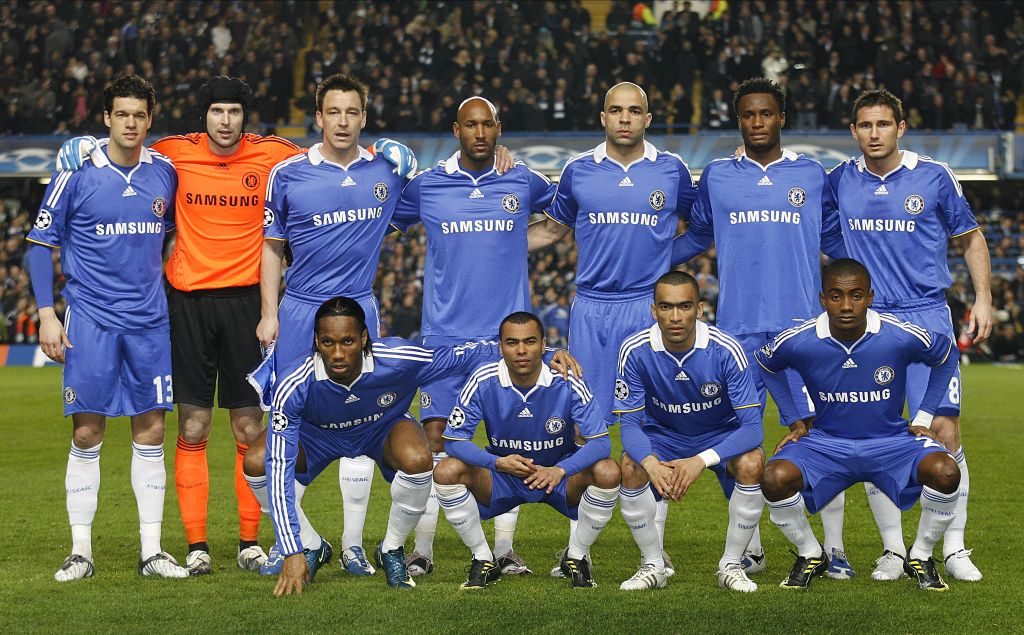Ranked! The 50 best football teams of all time
The best football teams ever – club and country – following rounds and rounds of arguments from the FourFourTwo team
20. Dynamo Kyiv 1985-87
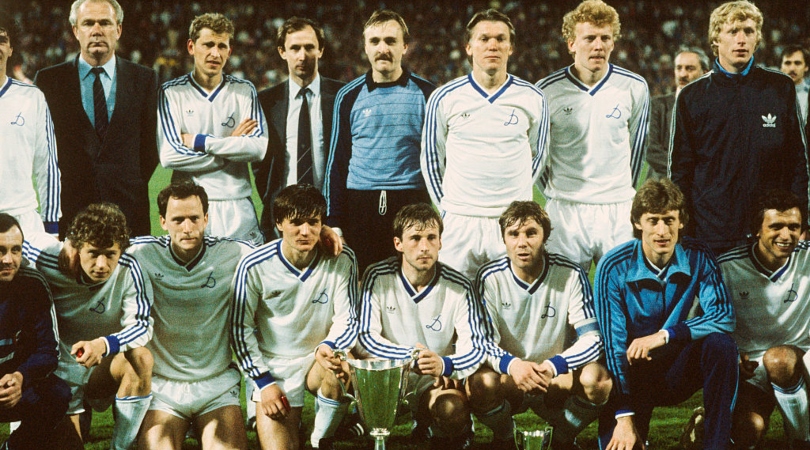
On the face of it, Dynamo have no business being on this list. The Ukrainians never went beyond the last four of the European Cup, while before the fall of the Iron Curtain they never managed to better back-to-back Soviet titles. Yet their gift to the modern game goes beyond mere gongs.
In an age where Opta data is scrutinised to the minutest detail, Valeriy Lobanovskiy pioneered scientific analysis in what had been an intrinsically subjective sport. In 20 years across three different spells as Dynamo coach, Lobanovskiy created a hat-trick of great teams.
It was his second side that proved his crowning glory, beating Atletico Madrid to the 1986 Cup Winners’ Cup. Oleg Blokhin’s goal – created by buccaneering full-back play and no-look passes – was the perfect representation of the coach’s beloved ‘universality’.
19. Netherlands 1974-78
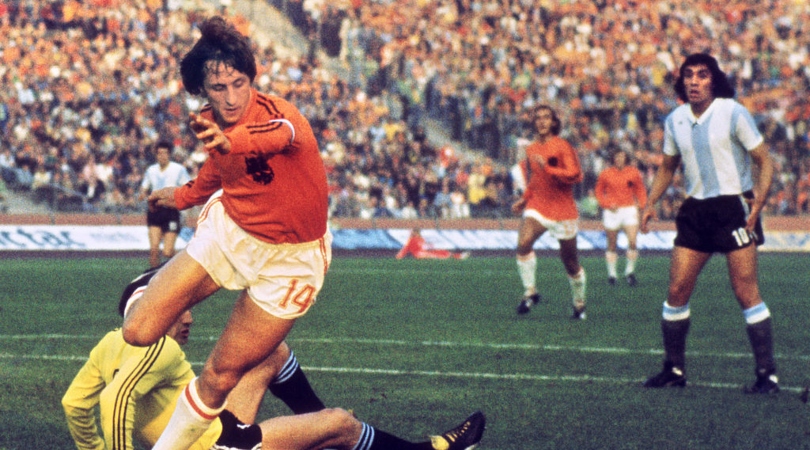
This was a thinking man’s side, comprising several members of the Ajax Totaalvoetbal side which won three successive European Cups from 1971 to 1973: the masterful Johan Cruyff, versatile defender Ruud Krol, nippy back Wim Suurbier, explosive midfielder Arie Haan, classy playmaker Johan Neeskens, brainbox winger Piet Keizer and lethal forward Johnny Rep.
En route to the 1974 final the Dutch scored 14 and conceded just one in powering past Uruguay, Bulgaria, Argentina, East Germany and Brazil; only Sweden stopped them scoring. In the final they netted before West Germany got a kick, but fatally failed to grab a second and lost to Gerd Muller’s seven-yard swiveller.
Euro 76 was a letdown and Cruyff retired from internationals just before Argentina 78; the Dutch still made the final, but two goals in extra time brought the hosts victory.
18. Juventus 1980-86
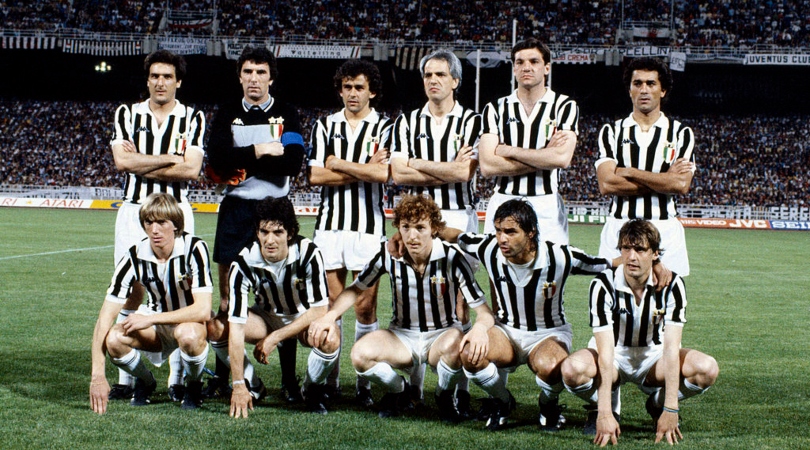
Juve boss Giovanni Trapattoni was a brilliant man-manager and disciple of catenaccio, and for his early successes in Turin he relied heavily upon the Italian players who would form the backbone of Italy’s 1982 World Cup-winning side.
Get FourFourTwo Newsletter
The best features, fun and footballing quizzes, straight to your inbox every week.
Yet Trapattoni’s experience in the Cup Winners’ Cup in 1979/80 kick-started a change of approach. So impressed was he with Liam Brady’s display in Arsenal’s 2-1 win that he signed the mercurial midfielder. Two title-winning seasons later, Brady departed to make way for Michel Platini, having shown what could be possible when you added foreign flair to Italy's well-deserved reputation for defensive solidity.
After a slow start, the Frenchman was sensational, winning three straight Ballons d’Or and inspiring Juve to three more league titles, an Italian Cup, a Cup Winners’ Cup and the European Cup.
17. Independiente 1971-75
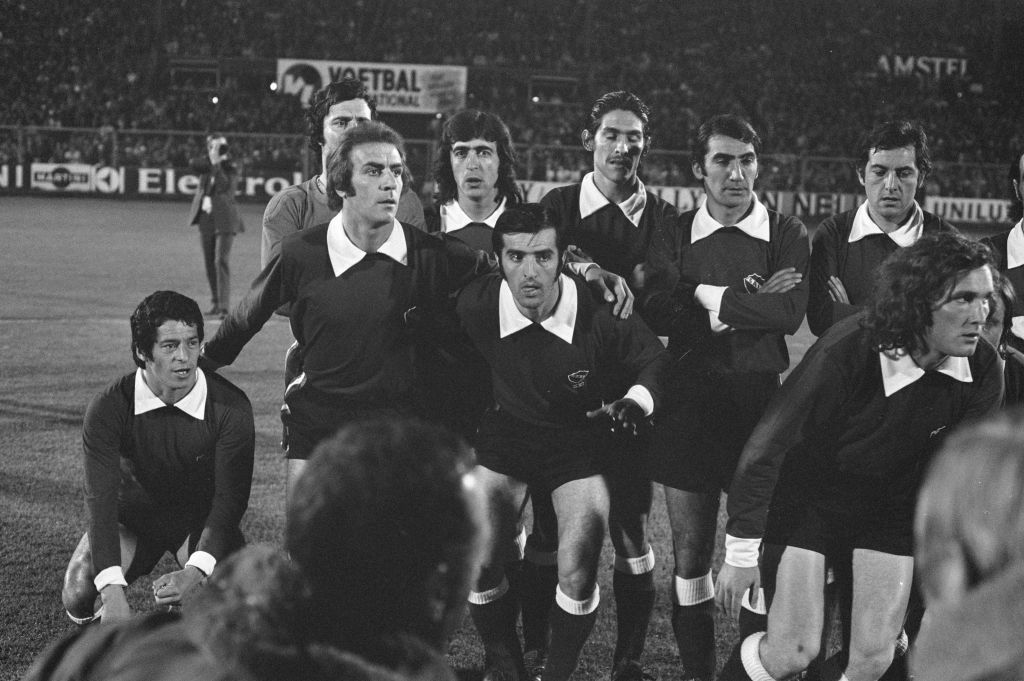
Despite Independiente's previous success in the Copa Libertadores, no one could have predicted that the Argentine side would go on to win four more consecutive continental titles, dominating the early 1970s and managing a feat which is unlikely to ever be matched.
This achievement owed much to the emergence of an academy graduate who would go on to become the club’s greatest player: Ricardo Bochini. The 5ft 6in playmaker was so good that he became Diego Maradona’s idol; Argentina’s hero of ‘86 would go and watch Independiente just to see El Bocha in action.
On top of the Libertadores, they won two Intercontinental cups, beating Juventus in 1973 and Atletico Madrid a year later, only losing to the great Ajax in 1972 – the only time Johan Cruyff played on Argentine soil.
16. West Germany 1970-76
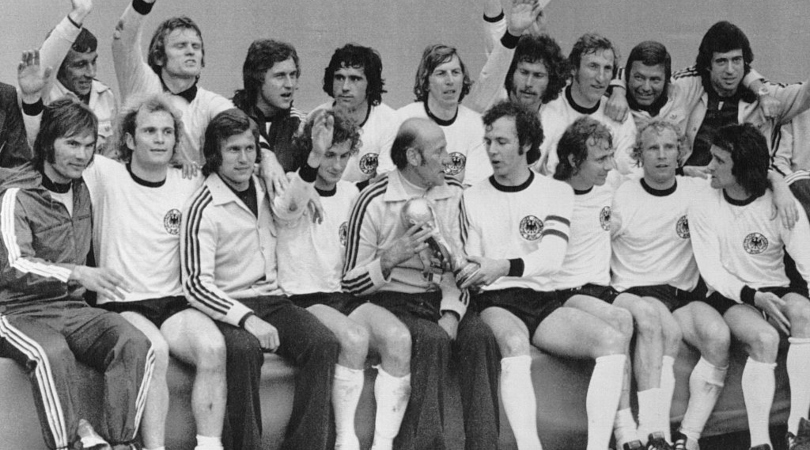
Among the new faces in the West German squad at the 1970 World Cup was Gerd Muller, who’d already scored 207 goals in 235 Bayern Munich appearances. He promptly bagged 10 in five games, including two in the semi-final defeat by Italy, a two-hour slog in which Franz Beckenbauer played with his arm in a sling.
For Euro 72, Der Bomber and Der Kaiser were joined by buddies from the burgeoning Bayern team – swashbuckling left-back Paul Breitner, doughty stopper Hans-Georg Schwarzenbeck and qualified teacher Uli Hoeness – plus three Gladbach greats in pass-master Gunter Netzer, schemer Rainer Bonhof and prolific striker Jupp Heynckes.
No wonder they won, just as they did at the World Cup on home soil two years later, before losing to Yugoslovia in the final of Euro 76.
15. Manchester United 1995-2001
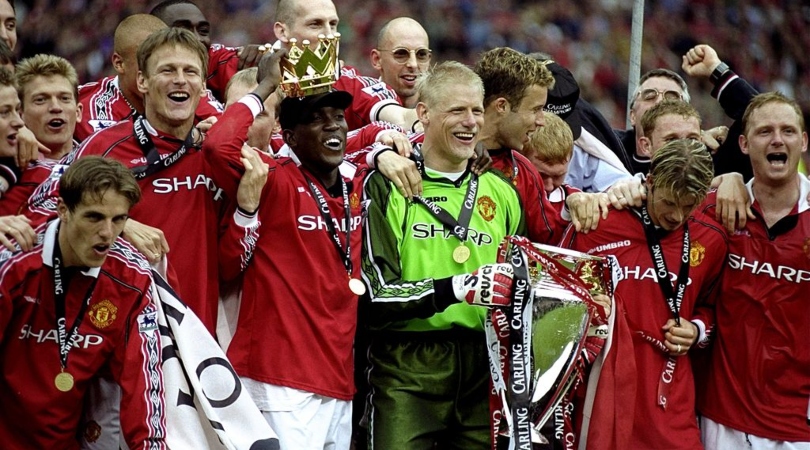
The summer of 1995 was a pivotal time in the reign of Alex Ferguson at Old Trafford. His team had just relinquished their Premier League title to Blackburn, lost the FA Cup final to Everton and sold Mark Hughes, Paul Ince and Andrei Kanchelskis – three key players in Ferguson’s first two championship triumphs.
Then the Manchester United manager did a strange thing: he bought nobody to replace them – instead choosing to put his faith in several members of the club’s FA Youth Cup-winning side, who had all made a handful of appearances the previous season. And so began the most dominant, consistent and thrilling period of the Ferguson era: as well as the famous treble in 1999, United won another FA Cup and four more league titles.
14. Celtic 1965-74
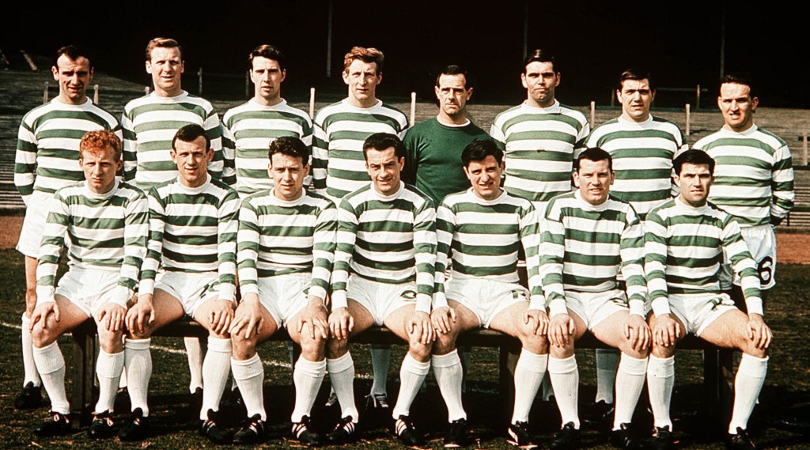
"They were sleek and tanned like film stars,” recalled Celtic’s Bobby Murdoch of the Inter line-up, as Celtic prepared for the biggest moment in their history, the 1967 European Cup Final. “On our side there were quite a few with no teeth.”
But a lack of pretension characterised this ragged band of brothers – hardly surprising, considering they were famously all born within 20 miles of Glasgow – as they went on to become the first British side to seize Europe’s ultimate gong.
Scottish football was far more competitive back then: when Jock Stein took the helm at Parkhead in ‘65, Celtic hadn’t won the league for 12 seasons. Stein’s subsequent nine league titles in a row stand as one of British sport’s greatest achievements.
13. Torino 1945-49
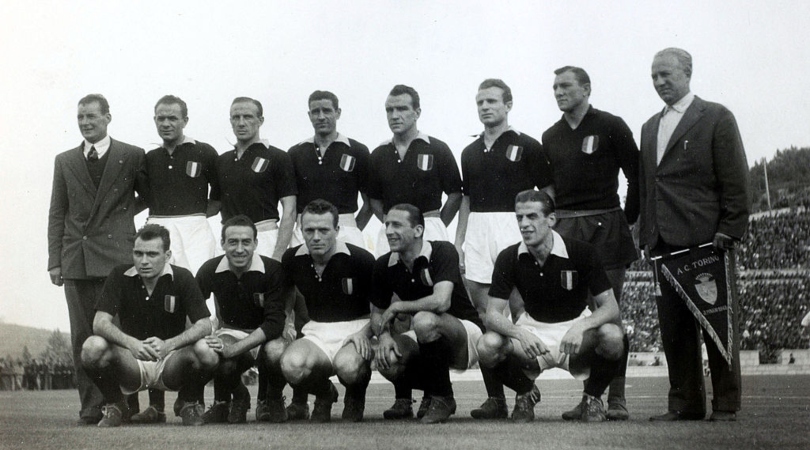
Believe the hype: the Grande Torino side that perished in the Superga air disaster on May 4, 1949 really were that good. In 1947/48, they won Serie A by 16 points (in the days of two for a win), scoring 125 goals, winning 19 out of 20 home games and finishing the season with a goal difference of +92.
This ridiculously gifted side was built by local businessman – and frustrated journeyman defender – Antonio Novo, who reorganised the club and created a sophisticated scouting network. Novo’s flowing, innovative side pioneered a flexible tactical approach that anticipates the cavalier 4-2-4 with which, 10 years later, Brazil won the World Cup. The Granata won five scudetti in the 1940s before tragedy struck.
12. Bayern Munich 1967-76
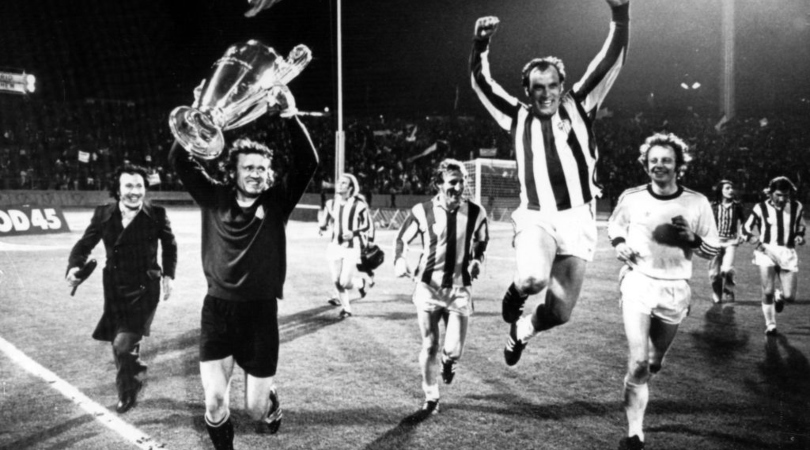
If a single team can create an entire club, then this side laid the foundation for the dynasty we know as Bayern Munich. When Franz Beckenbauer and Sepp Maier, both in their early teens, joined the club’s youth set-up in 1959, Bayern weren’t even the top club in their own city – 1860 Munich were more popular and successful.
That turned out to be a blessing in disguise, allowing a baby-faced team to gel, grow and learn outside the spotlight. In 1964 a young, chubby striker by the name of Gerd Muller signed for Bayern, because he thought he’d never break into 1860’s star-studded side.
At the end of his first season, Bayern were promoted and that was that: from then, their upward trajectory felt limitless, the Bavarians winning four league titles and three European Cups in nine years.
11. Benfica 1959-68
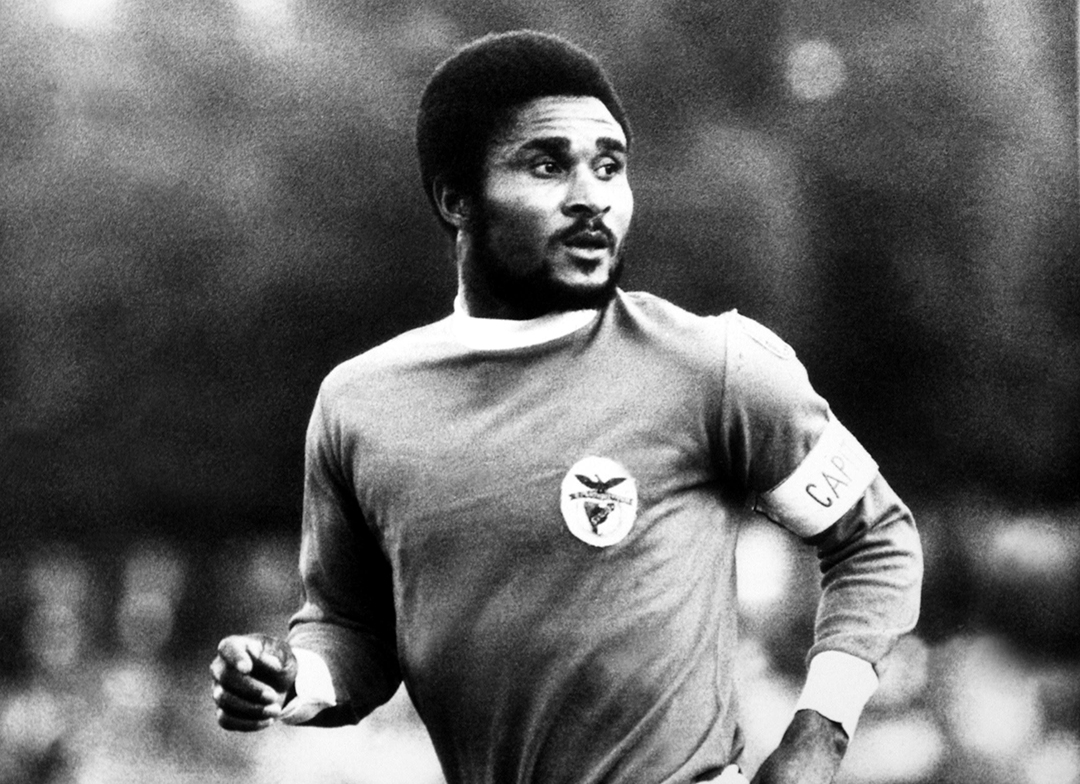
Restless Hungarian genius Bela Guttmann had a simple credo for building teams: “Give the public their money’s worth.” That philosophy came to glorious fruition in the Benfica side he created.
Playing an attacking 4-2-4 or the W-M formation with five up front, the Eagles reached four European Cup finals in seven years, winning in 1961 and 1962, and dominated the Portuguese league by hoovering up seven titles between 1960 and 1968.
The success of a team that became known as O Glorioso Benfica is often reductively attributed to one transformational genius, Eusebio. Yet the side’s most influential player, also born in Mozambique, was Mario Coluna. Known as the Sacred Beast, Coluna became the complete modern midfielder, a master strategist with an explosive left-foot shot.
Current page: Best football teams ever: 20-11
Prev Page Best football teams ever: 30-21 Next Page Best football teams ever: 10-1
Ryan is a staff writer for FourFourTwo, joining the team full-time in October 2022. He first joined Future in December 2020, working across FourFourTwo, Golf Monthly, Rugby World and Advnture's websites, before eventually earning himself a position with FourFourTwo permanently. After graduating from Cardiff University with a degree in Journalism and Communications, Ryan earned a NCTJ qualification to further develop as a writer while a Trainee News Writer at Future.
